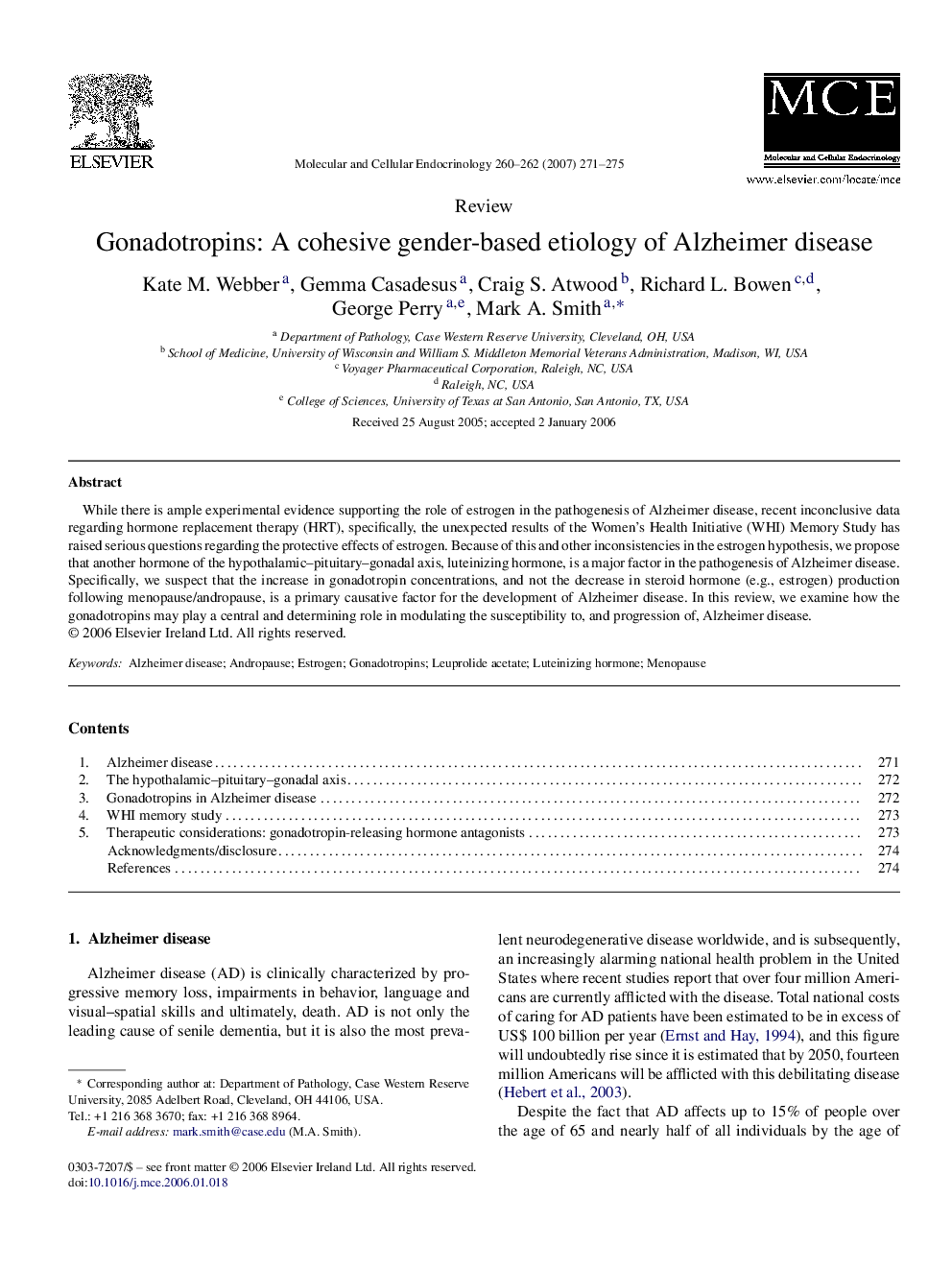| Article ID | Journal | Published Year | Pages | File Type |
|---|---|---|---|---|
| 8478313 | Molecular and Cellular Endocrinology | 2007 | 5 Pages |
Abstract
While there is ample experimental evidence supporting the role of estrogen in the pathogenesis of Alzheimer disease, recent inconclusive data regarding hormone replacement therapy (HRT), specifically, the unexpected results of the Women's Health Initiative (WHI) Memory Study has raised serious questions regarding the protective effects of estrogen. Because of this and other inconsistencies in the estrogen hypothesis, we propose that another hormone of the hypothalamic-pituitary-gonadal axis, luteinizing hormone, is a major factor in the pathogenesis of Alzheimer disease. Specifically, we suspect that the increase in gonadotropin concentrations, and not the decrease in steroid hormone (e.g., estrogen) production following menopause/andropause, is a primary causative factor for the development of Alzheimer disease. In this review, we examine how the gonadotropins may play a central and determining role in modulating the susceptibility to, and progression of, Alzheimer disease.
Keywords
Related Topics
Life Sciences
Biochemistry, Genetics and Molecular Biology
Cell Biology
Authors
Kate M. Webber, Gemma Casadesus, Craig S. Atwood, Richard L. Bowen, George Perry, Mark A. Smith,
